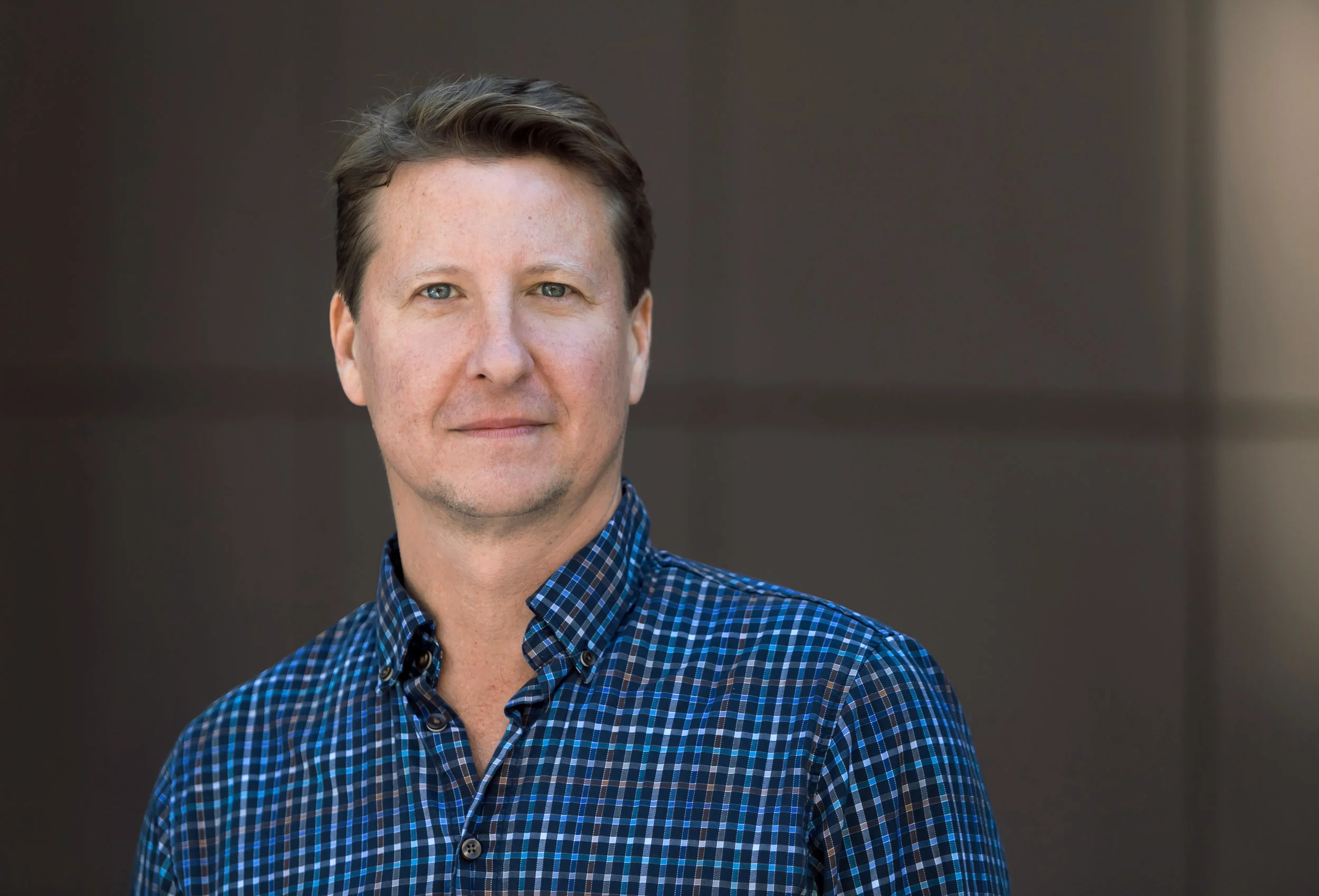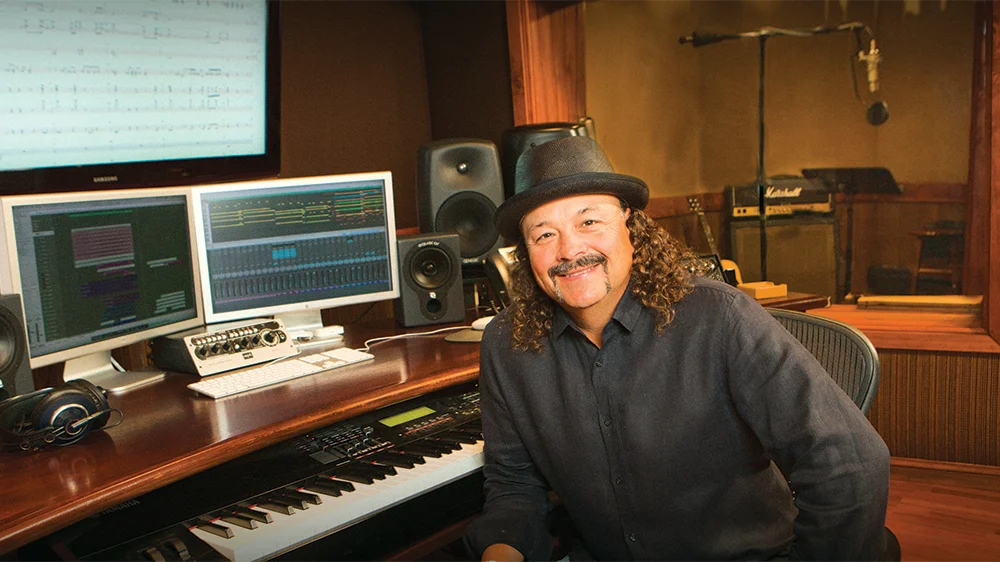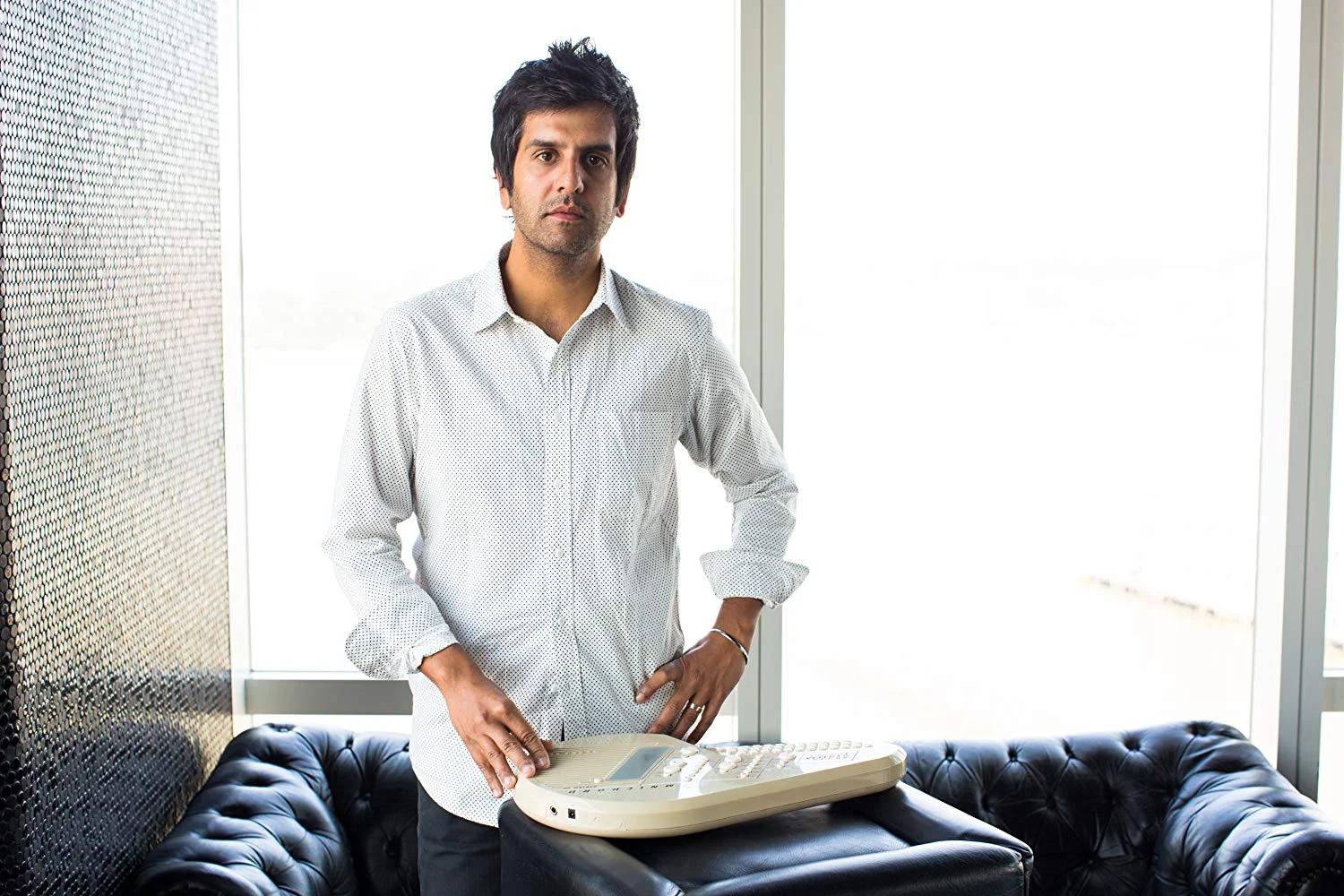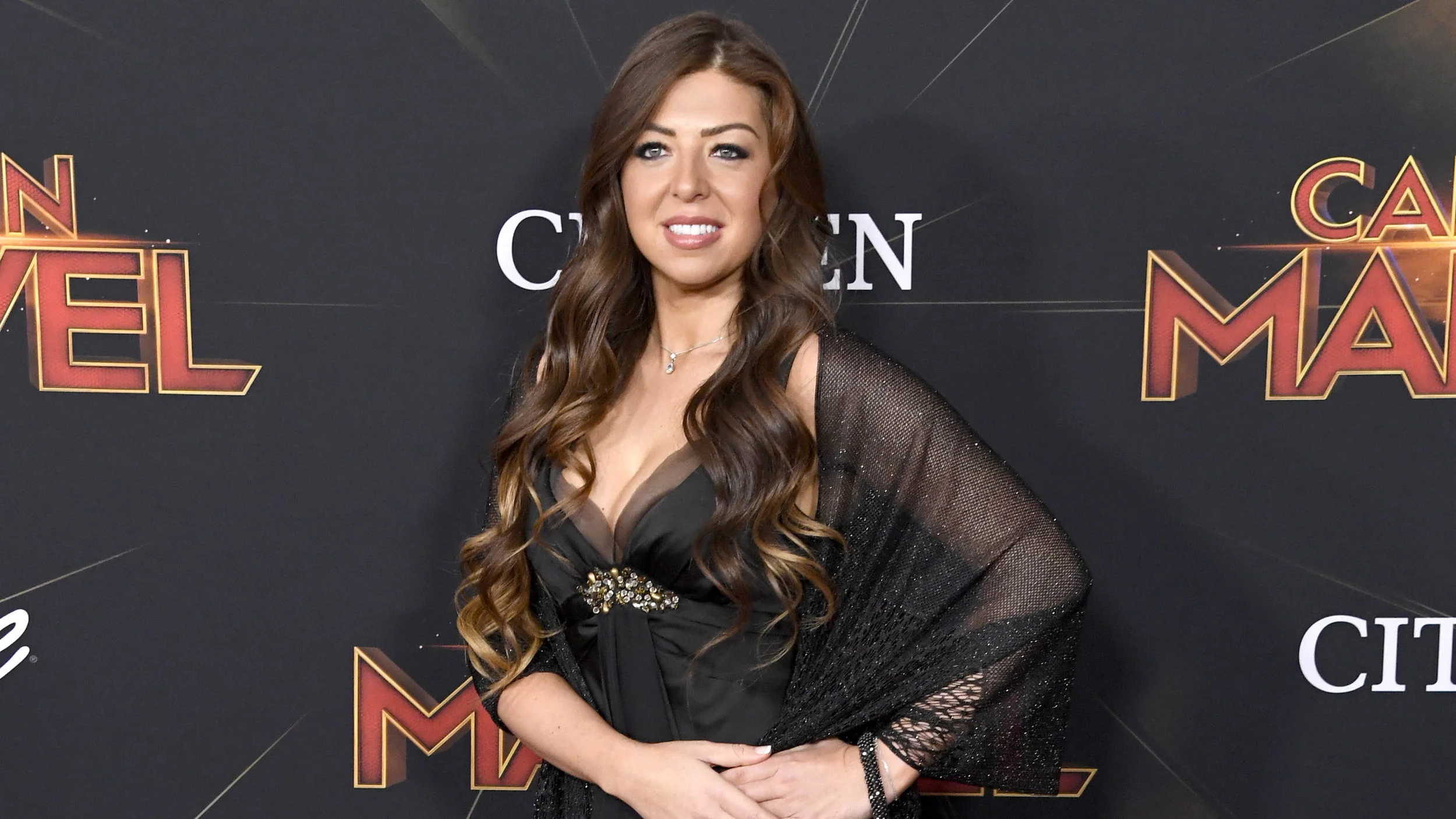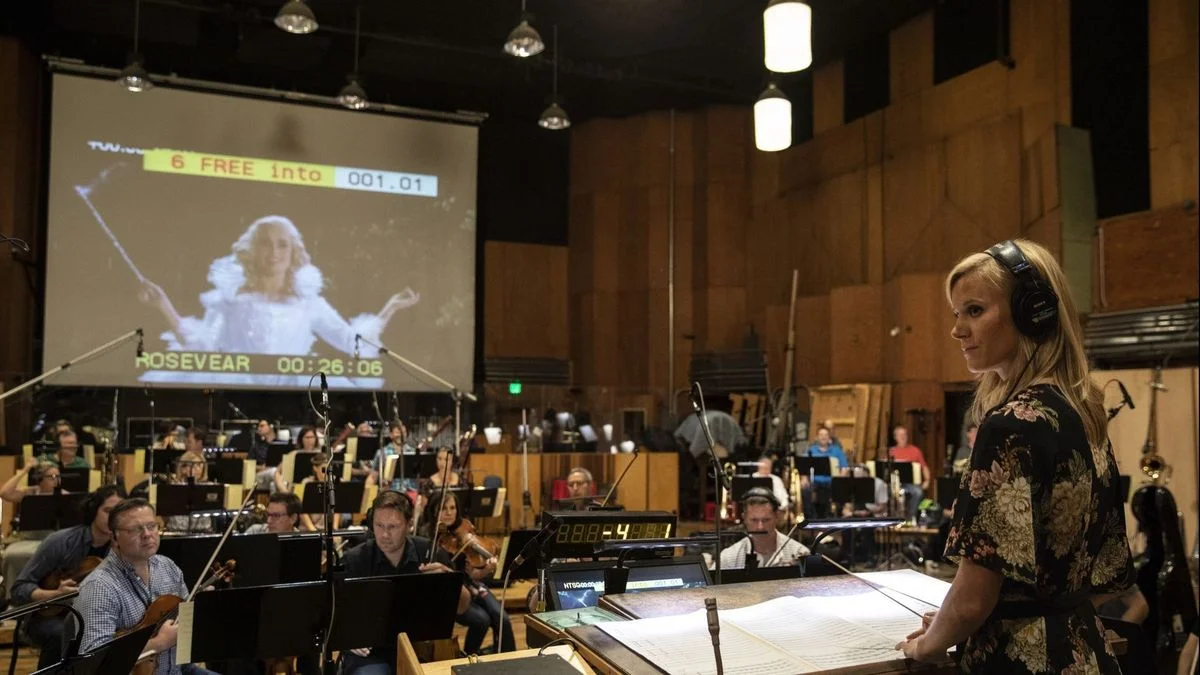Shawn LeMone
Shawn LeMone is the dynamic and inspirational Senior Vice President: Film & TV Music / New Media at ASCAP (American Society of Composers, Authors and Publishers). After graduating from UCLA with a Bachelor’s degree in social psychology, Shawn began his professional journey serving as a foreign levies administrator at Directors Guild of America. In his prominent role at ASCAP, Shawn guides and supervises the pursuits of their glittering lineup of composers for film, television, gaming, advertising, and beyond. To date, he has championed and advanced the careers of internationally acclaimed musical titans including Hans Zimmer, John Powell, Nicholas Britell, Jonny Greenwood, Michael Giacchino, Rupert Gregson-Williams, Junkie XL, Marco Beltrami, Carter Burwell, Marc Shaiman, John Debney, Jed Kurzel, Dave Porter, the late Jóhann Jóhannsson, and a legion of others. Shawn is responsible for an ambitious array of annual pedagogical activities, most notably the ASCAP Film Scoring Workshop and the film/television related programming for the ASCAP “I Create Music” EXPO. Under Shawn’s reign, ASCAP has formed meaningful partnerships with reputed organizations including the Society of Composers and Lyricists (SCL), the Alliance for Women Film Composers, the Production Music Association (PMA), and Game Audio Network Guild, fostering a strong sense of community for their membership. In our deeply informative discussion, Shawn reveals an expanding world of possibilities for creators in the music in media vertical.
Source: ASCAP
I understand that you possess a B.A. in social psychology from UCLA. Can you tell us about your background and what events led you to serve as a foreign levies administrator at Directors Guild of America? What initially attracted you to work for ASCAP?
My parents were both dancers and artists, so I was raised in a home of music and the arts. I went to UCLA, and I was interested in the human mind, but I also played guitar in bands in college. Instead of following an academic path in psychology and sociology, I decided to get a job in entertainment because of my interests. In 1991 there was a recession, and not a lot of opportunities were available, but I found a job at the Director's Guild. I was in charge of an account derived from levies in Europe on blank and rental tape to compensate Hollywood directors, screenwriters, actors and the studios for duplication of their product. The DGA and Writer's Guild hired me to administer their accounts, so that they would have one administrator for both of them. I didn't know a lot about accounting, databases or royalties, but I learned quickly.
That primed me for a job in royalties at ASCAP, particularly in the film and TV area. ASCAP, as you may or may not know, rents the third floor for its L.A. office from the Director's Guild. So, I was going to work in the morning upstairs, and I would meet the ASCAP folks at the food truck outside. After four years at the Guild, I was offered a job at ASCAP as a film and TV representative, and I took it. My background, working in royalties and answering inquiries from filmmakers and screenwriters on the royalties from the taxes in Europe, set me up to resolve royalty inquiries for ASCAP composers. I went downstairs from the fifth floor to the third, so I’ve been in the same complex since I left UCLA.
Based on your experience playing in a band, how prevalent were song placements when you were starting out?
It was very rare. Since 1995, when I started at ASCAP, I've witnessed the evolution of placements in film and TV. They’ve gone from being uncool and uncommon to being one of the most important and exciting things that young bands can aspire to. People used to call it “selling out.” No one wanted to have any of their songs in advertisements, television shows, movies. They'd be like, "That's lame, man.” It used to be like, "Why would I talk to those people over there? They're in film and TV. I'm not scoring films." Now, many songwriters in bands often want to be introduced to us, because it’s one of the most important things you can do to get exposure and some income, both from the synch fees and royalties from ASCAP.
For those who don't know, can you describe the duties associated with your role as Senior Vice President, Film & TV / New Media at ASCAP? What are the common day-to-day activities you engage in?
My role is to oversee our Film & TV department and as our SVP, to work closely with our high-level composer members. Explaining how we're involved in advocating on their behalf, in Congress, and within our industry. Resolving any questions about their statements, and supporting and celebrating their careers at festivals, conferences, and award shows. We network and introduce them to people we think are of like-mind and might serve as inspiration or useful partners. Often, they’ll ask for advice on business issues, including sourcing agents and attorneys.
It’s basically a one-stop shop. Any ASCAP member on the West Coast looks to us to answer basically any question they may have. It can be anything from questions about music reporting and royalty payments to "I'm getting a divorce” and “I want to set up an estate for my family." We are able to answer them and provide what they are looking for. We certainly try to support them in any way that we can.
Having worked for ASCAP for over 23 years, what would you say have been some of your greatest achievements to date?
Well, the standardization of cue sheets within the industry that allows seamless integrated reporting of music usage in programs and films to ASCAP and BMI is one. That was initially through ASCAP’s EZQ and now RapidCue. That was an accomplishment I think is pretty important. I've signed some of our biggest names in the film and TV industry to ASCAP. Bringing incredible composers like David Vanacore, Tom Holkenborg and Sidd Khosla to ASCAP has certainly been an accomplishment of mine and often they have become close, personal friends.
I've improved our annual Screen Music Awards show, which recognizes ASCAP’s top performing Film & TV composers. I renamed it “Screen Awards” from “Film and TV” to capture the evolution of our media landscape and increased its impact with more live performances, so our awards show is more exciting than ever before. Another big one is proselytizing the importance of music copyright in the video game industry. Very early on, I became involved and started going to their conferences. They didn't really understand why the ASCAP guy was there, but over time, I got them to understand that the music in their games is an asset. These days, many video game composers are registering their scores with us because there are now royalties from games. I've been involved with that from the very beginning.
In your time at ASCAP, how have the educational pursuits evolved? In terms of public awareness and member engagement, which have paid off the most for your organization?
The composer workshops we host have evolved over time to reflect the ongoing changes in our industry. We do two on the East Coast, a workshop with USC and we do other one-offs here and there with educational institutions. We are also responsible for the film and TV-related programming at the annual ASCAP “I Create Music” EXPO, which takes place every spring at the Loews Hollywood for aspiring songwriters and composers. This will be ASCAP’s 14th year presenting the EXPO, and we’ve already got some phenomenal composer panelists lined up from the film and TV world including Bear McCreary, Pinar Toprak, and Siddhartha Khosla. I hope that anyone who is considering songwriting and composing for their life’s work will join us May 2 – 4.
But, the educational program that probably has had the most impact on the careers of our composers is our flagship ASCAP Film Scoring workshop which we also hold here in L.A. Every year we get three hundred or more applicants from all over the world for twelve spots in the ASCAP Film Scoring Workshop. We have a tough time selecting them because there are so many that are just superbly talented. We put them through a month of education where they meet with agents, studio executives, orchestrators, the people that they aspire to be. The students are also asked to conduct a live orchestra featuring the best instrumentalists in town. Even though we have adapted the workshop to incorporate business and technical evolutions, providing access to that orchestra with musicians that just finished scoring some of Hollywood’s biggest films is a very important element of what we do.
We also learn about the composers as individuals and get a sense of who we feel most confident in advocating for. Because, as you know, working in this industry is not just about being able to write the best score but being able to interact well with other people. It’s a team effort, and you have to be adaptable and conform your creativity to the needs of the production.
In your career, you have empowered and advocated for a diverse roster of top tier talent. Can you give us some examples of valuable strategic partners and collaborative relationships you have maintained over the years?
We have formed strong alliances with important industry organizations like the Society of Composers and Lyricists (SCL), the Alliance for Women Film Composers, the Production Music Association (PMA), Game Audio Network Guild (GANG) and many others. We have created key educational and networking opportunities with all of these organizations on behalf of our members.
In promoting diversity, we have championed and supported our female composers like Deborah Lurie, Pinar Toprak, Sarah Schachner, Eímear Noone, Layla Minoui and many others. Women and minorities are severely under-represented in terms of composers who get hired for film and television projects, and ASCAP is committed to gender diversity and shining a light on the contributions of women in our industry.
Four years ago, we introduced the Shirley Walker Award at our ASCAP Screen Awards. Shirley was an amazing composer and orchestrator who mentored many of our top male composers working now in the industry. In her memory, we bestow an award in her name to composers like Germaine Franco, who we honored last year to promote the spirit of diversity and inclusion which Shirley so strongly emulated.
In your opinion, who are some of the unsung heroes of the music in media category?
I would say the family members and support network of our composers. Composers often have to lock themselves away in the studio for 24 hours a day, for weeks at a time, in order to meet deadlines that seem impossible. They have a rigorous schedule that few really appreciate until they are actually doing it. Having the support network of family and friends around them, that understand them, is really important.
I think anyone that's interested in working in this industry really needs to understand what they're up against, and what's in store for them. If you become successful, you have to be willing to put in long, hard hours. You have to be adaptable to change. If your score gets thrown out, you have to accept that and start over again. Even if you only have a day, you have to find a way to make it work. So, it's very imperative that the people around you— either the people that work for you, your husband or wife at home, and your kids — understand that and support you. I believe they're the unsung heroes in this industry.
What are the most significant challenges you identify in the current landscape that creators are contending with?
There are many. With the explosion of entertainment outlets, there is a demand for inexpensive programming content. With that comes an increased demand for music, which is great because it creates more opportunity for everyone in this industry. However, this has caused budgets to come down accordingly to meet the reduced potential revenues from smaller audiences. So, composers and publishers, and everyone else in our industry have had to contend with greatly reduced work-for-hire and licensing fees as a result of this.
There's more work for less money, so it becomes in a way, a numbers game for a lot of people. In order to make the same amount of money they used to make, working on fewer shows, composers have to work a lot harder and more efficiently, so they can balance more shows at once. It has also created a new opportunity with music libraries, which have proliferated and grown as a result of this changing landscape as they are best suited to meet the volume and budget demands for many productions and have a great need for new music.
How are you and your team at ASCAP fostering new opportunities for emerging talent in film music?
Our workshops, including those we do in partnership with academic institutions, are terrific ways for emerging talent to get a leg up in the industry. We also create more opportunities by making introductions to peers, mentors, and people that can help them find their way in the industry.
We often educate our current composer members about opportunities that they may not fully be aware of because there's an expanding world out there of possibilities. Perhaps a composer is very attuned to scoring for film, and then we introduce them to the idea that while they're looking for that big break, they should also be open to scoring games. Maybe we'd suggest working with a music library where there are a lot of opportunities to use a track that you've already written, or write for them directly and get paid. A lot of the music that you hear now on television is being placed by music libraries, so there's an increased opportunity there for composers — even some of our most successful film and television composers now have music in libraries as an additional revenue opportunity.
Over time, we've seen the definition of a film composer change dramatically. Today, we find old-guard traditionalists co-mingled with rock stars and popular music acts turned composers, along with many hybrids of the two worlds. How do you allocate your time to maximize your positive impact and nurture a productive environment for the ASCAP community?
While we recognize the different paths that our composers take either from traditional orchestral conservatories or emerging from popular music, we work with them as one cohesive community. There has always been a natural migration for some people working in the pop music world as songwriters, performers, and orchestrators into the composer community. I would say that this is more prevalent than ever as producers of film and television are looking for music that captures the current zeitgeist and are moving away from conventional orchestral palettes.
We advise many songwriters who come into the office looking for advice on getting into scoring. Or maybe, a director loves their music and asked them to score their first film. We can provide introductions to orchestrators and other composers who can assist them as they take the dive into that new world.
In recent years, what have been some of the most inspiring scores and soundtracks you've experienced behind the scenes or in a live setting?
The first thing off the top of my head is John Powell's score for How To Train Your Dragon, which was nominated for an Oscar. It was especially satisfying to honor him this past year at the ASCAP Awards. It was one of the most exciting experiences of my life here at ASCAP to be with him at Abbey Road and watch him score the newest installment, which is going to be out this year. I watched him work with a choir, and it was magical.
Another thing that was really inspiring was the ASCAP 100th Anniversary Concert at the Kraków Film Festival with Hans Zimmer, Patrick Doyle, Elliot Goldenthal, and Dario Marianelli. There was an audience of, I believe, 18,000 people, and it was just electrifying to see their response to those scores. That was one of the most amazing experiences I’ve had with scores in a live environment.
Looking to the future, can you tell us about the exciting forthcoming projects that ASCAP has in the works? In an ideal universe, what changes would you personally like to see manifest in the business of film music?
Streaming platforms both in AV and audio are, by far, the fastest growing source of revenue for ASCAP as audiences increasingly look to them for their viewing entertainment. ASCAP is on the frontlines as we ensure our members get full value for their works as these new platforms evolve. I also hope to continue to innovate our ASCAP Screen Music Awards and our workshops so that we can continue to foster the emerging crop of composers while we celebrate the careers of those that have already reached the pinnacle of success.
Interviewer | Paul Goldowitz
Research, Editing, Copy, Layout | Ruby Gartenberg
Extending gratitude to Shawn LeMone, Cathy Nevins, and ASCAP.

